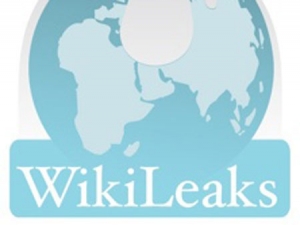The Australian founder of the whistleblower website Wikileaks had his passport confiscated by police when he arrived in Melbourne last week.
Julian Assange, who does not have an official home base and travels every six weeks, told the Australian current affairs program Dateline that immigration officials had said his passport was going to be cancelled because it was looking worn.
However he then received a letter from the Australian Communication Minister Steven Conroy’s office stating that the recent disclosure on Wikileaks of a blacklist of websites the Australian government is preparing to ban had been referred to the Australian Federal Police (AFP).
Last year Wikileaks published a confidential list of websites that the Australian government is preparing to ban under a proposed internet filter – which in turn caused the whistleblower site to be placed on that list.
Mr Assange, 37, told The Age newspaper that half an hour after his passport was returned to him an AFP officer searched one of his bags and questioned him about a previous criminal record for computer hacking offences when he was a teenager.
He was then told his passport status was classified as “normal” on the immigration database
In 1991 Mr Assange, described by Wikileaks as “Australia’s most famous ethical computer hacker”, was charged with 30 offences over the alleged hacking of police, Telco’s and US military computers. He admitted to 24 charges and was fined and placed on a good behaviour bond.
Mr Assange told the Dateline program that Australia is one of a few countries he is wary of travelling in as a result of documents published on the Wikileaks website.
“There are places … Dubai, who is trying to have us arrested, Switzerland under the bank secrecy laws, Cayman Islands,” he said. “Australia had the federal police in relation to its censorship list so there are some jurisdictions that from time to time it wouldn’t be sensible to go there.”
Wikileaks, which publishes anonymously sourced confidential documents from governments and corporations, was launched in January 2007.
The site has since exposed secrets about corruption in Kenya, Nato’s plans for the war in Afghanistan and the operations manual for the US detention centre at Guantanamo Bay.
Last month Wikileaks created international headlines when it published classified US military footage of an American attack helicopter gunning down Iraqi civilians and a Reuters photographer in 2007.
Until recently Mr Assange has kept a very low profile, rarely granting interviews or making public appearances.
He is believed to have boltholes in Iceland, Sweden and Kenya, but does not have an official home base. He says he travels every six weeks, running his Wikileaks empire from a laptop and a backpack while on the road.
May 17, 2010
Sophie Tedmanson in Sydney
Source: Times Online
Related information:
– WikiLeaks Plans to Post Video Showing US Massacre of Afghani Civilians
In case you want to know what the US government response was to this video:
Here is what Defense Secretary Robert Gates had to say:
– Gates: WikiLeaks Video ‘Painful To See’ But Won’t Have ‘Lasting’ Impact (Huffington Post):
“And, you know, we’ve investigated it very thoroughly. And it’s unfortunate,” he added. “It’s clearly not helpful. But by the same token, I think it should not have any lasting consequences.”
– The War on WikiLeaks … and Why It Matters
– US Must Stop Spying on WikiLeaks
– Pentagon Targets WikiLeaks Whistleblowers
– Pentagon Adds WikiLeaks to The List of Enemies Threatening National Security
– US Army considered attack on Wikileaks

1 thought on “Wikileaks founder Julian Assange has passport confiscated in Australia”